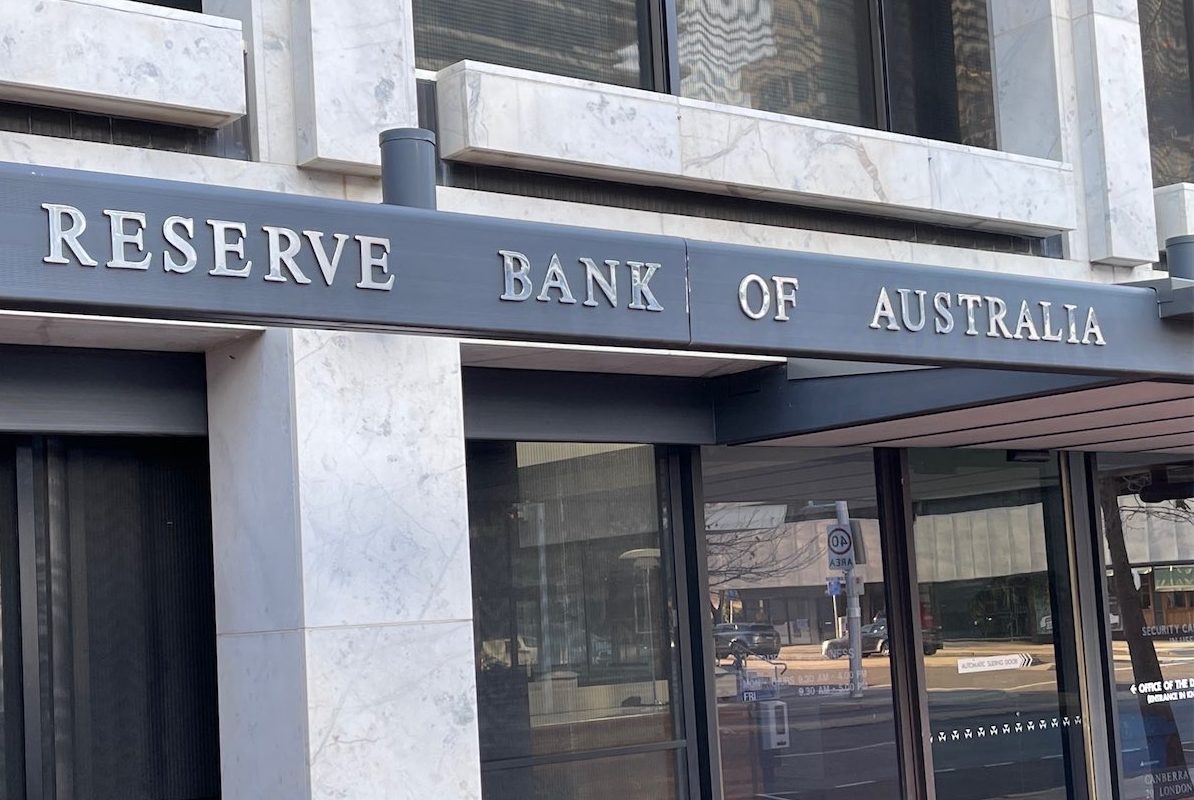Letter writer RIC HINGEE says that being “woke” is not necessarily constructive or productive, especially when it comes to buying fire engines!
WELL-known Braidwood mushroom farmer and avid greenie, Peter Marshall, has been commenting of late on being “woke”.

What he needs to realise is that being “woke” is not necessarily constructive or productive.
When I commented on an ACT decision to buy electric fire engines and suggested that a cost/benefit analysis should be done first as they cost twice as much as normal ones, I was accused by Mr Marshall of not researching the matter properly.
Actually, I had checked the cost of these same fire engines, which are used in America. No doubt Mr Marshall would have been chagrined to learn that the ESA later confirmed that they would indeed cost twice as much as current engines.
Furthermore, the auditor-general revealed that it intended to examine the cost/benefits of the decision.
I was obviously anti-woke in my suggestions as far as Marshall was concerned.
It seems to me that such people are incapable of looking beyond the initial proposal. For example, wouldn’t it be better to put out a fire in half the time by having twice as many fire engines?
If that were the case, wouldn’t putting out a fire more quickly result in more environmental benefit, and limit the impact on flora and fauna, outweighing the benefits of driving electric fire engines around when there are no fires? Hopefully the auditor-general will consider this aspect.
I have been a supporter of environmental matters for decades, was even involved in drafting the Commonwealth’s first environmental legislation, The Environment Protection (Impact of Proposals) Act, and was a Green supporter until Adam Bandt took over the reins from Bob Brown, so feel I am in a good position to determine whether particular proposals should be supported simply because they are “woke”. Let commonsense prevail.
Ric Hingee, Duffy
In last moments, she knew she was cared for
RECENTLY, I drove back into Canberra from Bywong (I volunteer at an animal sanctuary there) and I came across a kangaroo on Horse Park Drive, Gungahlin, who had either just been hit or was terrified at finding itself trapped on one side of a major arterial road.
It was panting and distressed, and collapsed in front of me on the side of the road.
I was extremely fortunate in that three people cared enough about her to stop and help me (thank you, kind strangers). The gentleman undertook a pouch check and also lifted the kangaroo to safety on to the nature strip away from the cars.
I covered her with a towel and stayed with her until she passed away.
When she looked into my eyes, I was glad that in her last moments she wasn’t alone and she knew she was cared for.
Yet again this was a scenario where a kangaroo was trying to cross from one green space to another but had four lanes of traffic travelling at 90km/h plus to navigate.
Most likely her death could have been prevented if there was a wildlife overpass. Other countries such as the US and Canada have established wildlife overpasses and underpasses, successfully reducing the rates of death and injury for wildlife as well as reducing car accidents.
The Greens have promised to deliver a series of wildlife corridors across the ACT but have failed to deliver on this promise.
We’ve got to do better for our wildlife than this.
Rebecca Marks, Palmerston
Why would any drug addict consider treatment?
WHY would any drug addict consider treatment when they now have been given the “green light”, signalling it’s now okay to use small amounts of meth, cocaine and ice?
Barr’s woeful, arrogant, tired and “no-morals” government totally beggars belief!
Perhaps all citizens, voters and road users, should be demanding that our politicians need to be regularly drug tested before making any decisions that will affect all Canberrians living in what is supposed to be a safe environment.
This out-of-touch, far-left government is now openly encouraging our youths and older citizens of Canberra to simply go for it. It has completely lost its moral compass. Drugs are illegal, no matter what spin Barr wants to put on it.
I truly do not know what planet Barr is on, but clearly he has conveniently forgotten that we do not have a health system as such; we have a toxic Canberra Hospital (the worst in Australia), that nothing seems to work, blow-outs and long, long waiting lists with no end in sight.
Hence why he had to “acquire” our beloved Calvary Public Hospital. And now, it is going downhill since the takeover with nurses leaving en masse.
Further to the above, Canberra’s current population stands at 472,000.
Given that we only have 731 sworn in police, how does Barr really think he is going to control more crime, more deaths on our roads, related to drug-driving accidents and “ice heads” attacking innocent victims?
Enough of these ongoing blatant failures. Do the jobs you’re being paid to do, and grow up or get out!
Ros Thomas, Gordon
It’s the contaminants of the mind that spread fear
THE problem with contaminants in our environment is that data can be deceptive and misconstrued (Murray May, letters, CN November 9).
If the object supposedly impacted is the Great Barrier Reef and the contaminant is either 1ppb (parts per billion) or 1 per cent, the emotional response will be the same. This is despite the Great Barrier Reef having the highest coral cover since monitoring began.
Similarly with woodfire smoke, the health impact from smoking a cigarette is orders of magnitude worse for an individual, although admittedly voluntary.
The unpleasant smell from wood fires is the product of incomplete combustion. Similarly on fireworks night, the smoke and smell are the same although the combustion material is different and could be regarded as less benign than wood.
Emissions from wood fires are transitory, localised and will persist until that pocket of air moves.
As for extrapolating statistical results from large-scale epidemiological studies these can be misconstrued when applied to individual risk.
The contaminants that cause the most concern these days are contaminants of the mind that spread fear and are based on many issues including poor reasoning, inaccurate context, exaggeration, limited data or inconclusive science. The pressing need is to ensure the education system provides our youth with critical thinking skills.
Malcolm Sherren, Stirling
From the mob who are asking us to trust them
(NEARLY) buried, on page 345 of the planning authority’s annual report, are some interesting stats on handling DAs.
In only one “accountability indicator” did the EPSDD meet (in fact significantly beat) their target – exemptions from requiring development approval!
In all the others they were a long way below target – eg, only 66 per cent of decisions within the required timeframe and, very notably, only 54 per cent of their decisions upheld on appeal to ACAT (compared to their 85 per cent target).
This is an appalling performance and can only be attributed to their poor decision-making. And this is from the mob who are asking us to trust them to objectively and competently apply their new, highly discretionary, “outcomes-focused” planning system!
Richard Johnston, former senior executive ACTPLA, Kingston
The Voice has come and gone, and what?
THE Voice referendum has come and gone, indirectly educating many Australians to the plight of our indigenous people.
Yet across the country this new recognition has produced no improvement in their circumstances and least of all here in the ACT, the only place to deliver a majority “Yes” vote.
Are we Canberrans thus to slip back into comfortable complacency, content to obey a pointless law by meaningless announcements about “Welcome to Country” and using borrowed slogans like “First Nations”? Even empty statements by government and businesses that we are upon indigenous land, irksome to many like the proceeding slogans, which again achieve no positives for our locals.
So come on ACT government, start moving upon the many issues needing attention among our Aboriginal population and which our community supported.
Greg Cornwell, Yarralumla
The sizeable Jewish population influences US
COLUMNIST Robert Macklin (“The only means left to decide the winner is force”, CN November 9), referring to the Israel-Palestine conflict, contends that the current situation results from the main religions involved – Judaism and Islam.
The reality is if both faiths adhere to the central tenets of their beliefs, they would not be at war. I hasten to add that Israel has the additional problem having to deal with Hamas which complicates the situation. However, in line with their beliefs and international law, extreme care should be taken to avoid civilian deaths.
While the official death toll is disputed (it usually is in times of war), it is clear thousands of Palestinians have died including a very high number of children. As Anthony Blinken has said, far too many have died. Israel’s response should be proportionate.
Mr Macklin also states that the Israelis count the Evangelical Christians of the US as their friends. I would contend that the US stance is influenced more by the sizeable Jewish population in the US and its significant presence in the media landscape. If Donald Trump were to be re-elected as president, while it would be partly due to Evangelical support, he would severely curtail US aid to Israel, as he does not particularly like Benjamin Netanyahu and will be looking to retain the loyalty of his wider support base.
Herman van de Brug, Holt
Garran street parking far from calming
FIRSTLY, I miss your “Grumpy” column because this is a grumpy email.
Parking on both sides of Dennis Street, Garran, on weekends by hospital construction employees has become dangerous, causing road rage by local drivers unable to move forward and truck drivers who have become wedged between cars, struggling to reverse out of the situation they have found themselves in.
Then, of course, there is the backup of cars obstructing Palmers Street trying to turn right.
I have contacted Fix My Street with videos of wedged trucks and enraged car drivers. A Fix My Street representative assures me parking along Dennis Street, is not a problem and is allowed because it is a traffic-calming measure.
He/she has obviously not driven along Dennis Street on the weekend, it is far from calming.
Ann Sullivan, Garran
Offended by ‘druggie’ reference
IN response to Vi Evans (Letters, CN November 16), I can only state that I am appalled and offended by Vi labelling people who are dependent on substances as “druggies”.
Vi stated that according to her sister, whilst visiting Vancouver, “there were druggies out on the streets, in the gutter, propped against the walls and parked on any available bench”. This appears to imply that this will occur in the ACT following the implementation of the decriminalisation of drugs bill.
Vi, with all due respect, can you please provide a concise definition of what a “druggie” is? I question whether you have met a “druggie” and listened to how they became dependent on substances.
Why am I offended? I’ll tell you why.
I watched my beautiful daughter become dependent on illicit substances; however, she is no longer here to defend herself to explain why she became, in your terms, a “druggie”.
I sincerely hope you do not have to endure the pain of watching a loved one succumb to the tentacles of dependency; however, I do wish you may open your mind to many people who have suffered trauma and self-medicate to numb their pain.
Janine Haskins, Cook
Gas guzzlers can still be driven after 2035
VI Evans (Letters, CN November 9) can sleep soundly knowing that both local and interstate gas guzzlers will still be able to be driven in Canberra after 2035. And she’ll still be able to buy her petrol.
ACT government policy is for no new non-EV registrations after 2035. The existing fleet of vehicles will still be able to be registered.
Perhaps Ms Evans is not aware that apart from spewing carcinogens into the air we breathe, internal combustion engines waste an appalling 70 per cent of their fuel energy in the form of heat. Only 30 per cent goes into propelling the car.
Australians also send more than $30 billion out of the country each year to despotic countries, just to buy oil to keep our transport running. Is that sensible?
Peter Lyons, Kaleen
Who could dispute our culture of death?
IT was good to read the letters from Ian Pilsner and Sue Dyer (CN November 14) because, as Martin Gordon noted coincidently, such a broad spectrum of views is no longer supported by “The Canberra Times”. Perhaps this letter is an example.
While Sue Dyer is undoubtedly correct when she vents that politicians who oppose the trend in the ACT are not tolerated, she should open her eyes to what is happening.
During the past year Calvary Hospital was taken over by the government amid cries for free abortion; hard drug use has been decriminalised with little evidence that the associated death rate will be reduced and no other motivation to abstain; euthanasia legislation has been introduced, dedicated to ending life once a relevant diagnosis has been made.
We are an ageing society with little time or inclination to raise children, preferring unrestricted choice and consumerism.
Who could dispute that we have a culture of death?
It is conservatives such as Zed Seselja who see the consequences of this abuse of freedom.
John L Smith, Farrer
One question: where has the money gone?
AMONGST all the dollars, statistics, tables and graphs in the article “How this high-taxing government can’t stop spending” by Jon Stanhope and Khalid Ahmed (CN November 16) one question stood out for me: where has all that money gone?
It hasn’t gone into road or suburban maintenance; its expenditure is conspicuously lacking in the upkeep of public land (outside the Parliamentary Triangle) and in public housing; and it certainly hasn’t gone into Canberra’s health system.
My strong feeling is that a large slice of the ACT’s revenue pie goes into the gaping maw of the “19th-century technology” light rail project. That maw has yet to be sated: stage 2B, if the first sod is turned or the first hole is drilled, its multi-billion cost will make the ACT government’s 2023-2024 forecast budget blowout of $579 million look trivial.
Dr Douglas Mackenzie, Deakin
And then I realised I was dreaming…
I DREAMED last night that I was reading the “CityNews” letters page and read a letter praising the ACT government. That’s when I realised I was dreaming!
Russell Wenholz, Holt
Halloween is rooted in the occult
I FULLY agree with the sentiments expressed by Valarie Jones (Letters, CN November 9) regarding the effects of Halloween, especially on children.
The general public thinks this imported American festival of ugliness, darkness and death is all only fun and games.
The reason for this is ignorance about the origins of Halloween. In fact, the festival is rooted in the occult.
For a thorough and erudite explanation not only about Halloween but about scores of cults and other weird beliefs, people can check jubileeresources.org
Vivien Munoz, Holt
Speaking of cheese, thanks Clive
MY thanks to Clive Williams for his reminder that puns are an essential part of our literary lives (CN November 2).
It’s especially true for us old blokes as our “dad jokes”, often puns of the groan-inducing kind, morph inevitably into execrable “granddad” versions. Like the ancient and mouldy: “Speaking of cheese, Edam is made backwards”.
Eric Hunter, Cook
Why we’ll have zero effect on warming
SO many words about climate change in the media, but so little about the fundamental cause, ie world population growth and the energy demands thereof that produce the greenhouse gases that are said to be causing the problem.
World population is set to grow from the current 8.1 billion by 30 per cent to over 10.5 billion before the end of the century, most of this increase being due to developing countries of the Indian sub-continent, Africa and south-east Asia. Countries of these regions – India, Pakistan, Bangladesh, Indonesia and Nigeria together (2.343 billion) account for about 29 per cent of population.
However, all of these nations understandably aspire to greater standards of living, all of which demands energy, most of which will come from fossil fuels for the rest of this century and probably beyond.
When one considers these demands, one can easily reach the conclusion that, without some natural or induced catastrophe blighting the world, the demand for energy will continue to increase and the vast expense by the world in renewable energy sources (themselves renewable every 20-30 years) in the hope of reducing non-vapour greenhouse gas emissions is really a forlorn hope.
Australia alone is planning to waste an estimated $1.5 trillion on renewable energy infrastructure which, with only 1.1 per cent of world emissions, will have zero effect on global warming, let alone permanent climate change. Some investment!
Max Flint, Erindale
Who can be trusted?
In a world of spin and confusion, there’s never been a more important time to support independent journalism in Canberra.
If you trust our work online and want to enforce the power of independent voices, I invite you to make a small contribution.
Every dollar of support is invested back into our journalism to help keep citynews.com.au strong and free.
Thank you,
Ian Meikle, editor





Leave a Reply